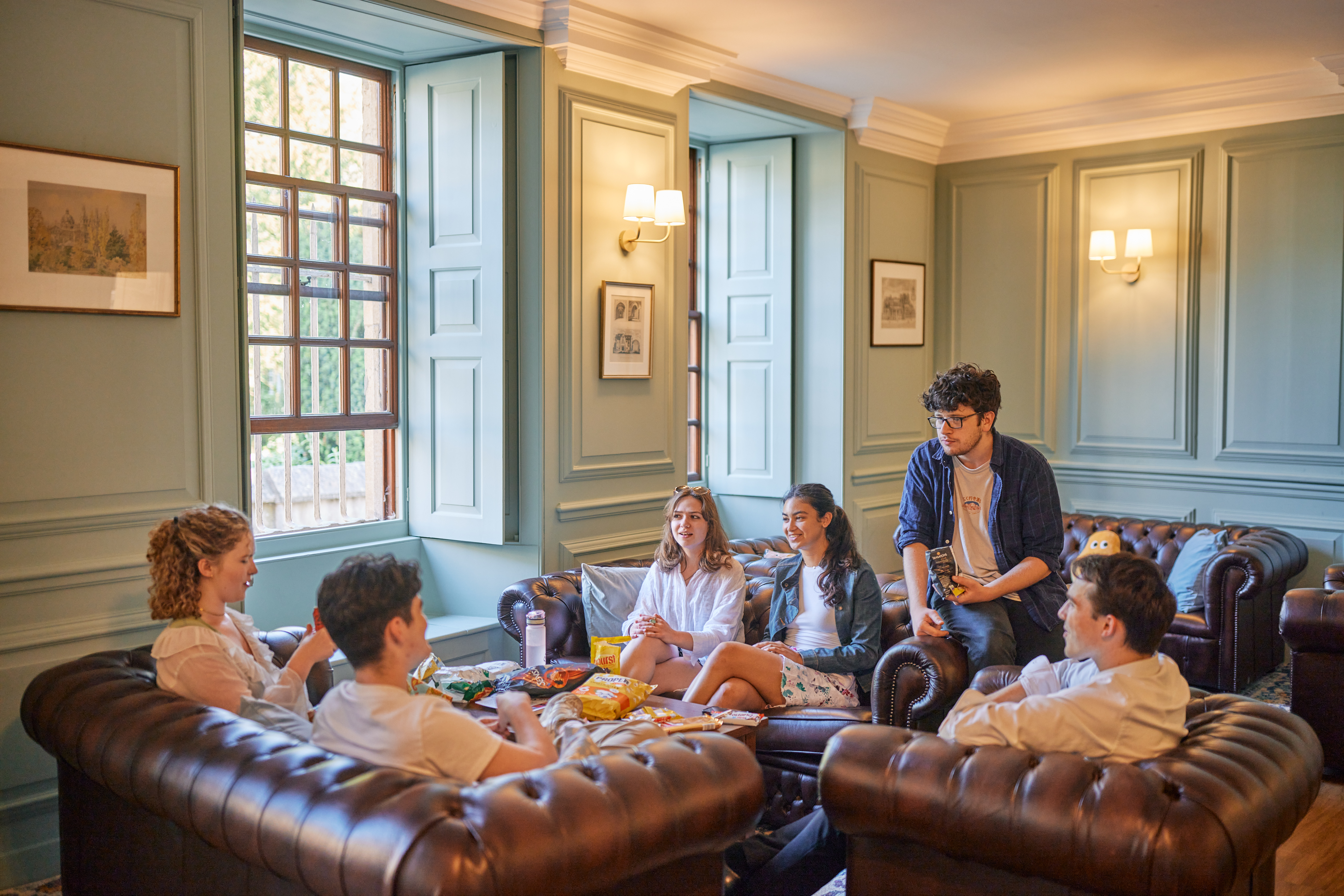The College counsels that leaving the College during each vacation is highly beneficial to allow for a period away from the intensity of term-time. The College believes that this will ultimately help with health and academic performance, especially before exams.
The College’s primary accommodation provision for undergraduate Junior Members is term-time residence: three terms of eight weeks, plus four days prior to the start of term (from Wednesday of 0th week through to Saturday of 8th week). The Licence Agreement and Summary Agreement outline all details of the contractual obligations for Junior Members’ occupancy in College accommodation, including the date of arrival and departure each term. Junior Members are expected to arrange to arrive and depart each term as outlined in the College Regulations and in their Accommodation Licence and Summary Agreements. As such, vacation residence should be considered unusual, and not a regular opportunity to remain in Oxford.
College accommodation is not designed to offer Junior Members permanent or even semi-permanent living arrangements, and between the academic terms undergraduate Junior Members must vacate their accommodation as stipulated by the Licence Agreement and the College Regulations.
Subsequent to their first year, those who wish to study or work in Oxford year-round should plan to rent private accommodation.
Junior Members should discuss study plans with their Personal Tutors at the end of each term, and be sure to gather the appropriate materials and/or arrange remote access to online resources to allow them to work effectively during the vacation away from Oxford.
The College does not provide welfare support during vacation periods, during which Junior Members are regarded as not in residence.
Certain undergraduate international Junior Members and those on courses which have extended terms, may apply for Licence Agreements that permit longer and continuous periods of occupation (but not throughout summer vacations). All other undergraduate Junior Members must apply for vacation residence if they wish to arrive before or after the licence period (see above).
Junior members must remove all belongings from College spaces outside of term-time residence, as required by College Regulations. The College provides very limited storage for undergraduate international Junior Members only.
Those who wish to obtain storage in Oxford during vacations may refer to the following storage companies, or other storage companies of their choosing:
Please note that these companies are not a recommendation from the College; the College has been contacted by them and other students have used them. The college accepts no responsibility for their performance. Junior members should investigate any company thoroughly to be confident of their reputation and to ensure that they fully understand the terms of business, including loss or damage.
Junior Members who have examinations that fall in weeks 9 and 10, or who must arrive early for exams in week 0, will always be granted vacation residence, but should see the Regulations for details regarding application for vacation residence for these periods.
Any other vacation residence should be regarded as an exception, and is granted only under specific conditions. Vacation residence is not available throughout the summer months, other than in weeks 9 or 10 of Trinity, and week 0 of Michaelmas: please see details in the Regulations.
Notwithstanding the general advice that leaving Oxford is highly desirable during a vacation, a Junior Member with exams in Trinity Term which contribute to their final degree result can apply to stay over the Easter vacation. Because of limited capacity, priority will be given to those Junior Members in their subject priority year. (This is specified by subject by the senior College tutor in the subject; it is not a matter of student choice).
The Accommodation Office manages the applications for vacation residence, which is run as a gathered field exercise, and deadlines for the applications are well advertised. Administrating large numbers of applications for vacation residence is time-consuming; Junior Members therefore should not expect consideration of exceptions to the regulation or the application deadlines.
Refer to the College Regulations for detailed further information and all rules governing applications, and the reasons permission might be granted for a vacation residence period (i.e., any residence outside the dates prescribed in the Licence agreement).
